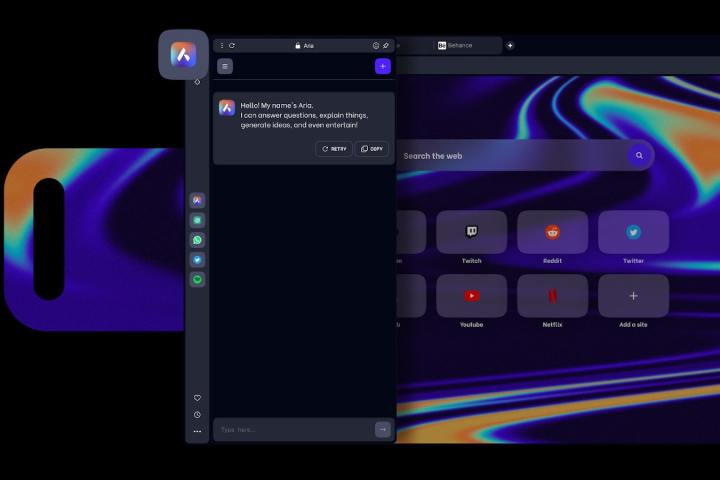It’s no secret that artificial intelligence (AI) and chatbots have taken the tech world by storm in recent months. Now, the Opera browser is trying to get in on the action by releasing Opera One, which it dubs “the first AI-powered browser.”
Opera (the company) describes it as “the latest incarnation of the Opera browser,” one that has been given a “major makeover.” The company “reimagined and rebuilt Opera from the ground up,” it says, “paving the way for a new era in which AI isn’t just an add-on, but a core part of your browsing experience.”

In practice, that means the inclusion of Aria, a GPT-based AI that was created with the help of OpenAI, but given an “Opera twist.” Much like Bing Chat in Microsoft’s Edge browser, Aria is used to answer questions, generate code and conversations, and gather information from across the web. It can also help you out with any queries you have about how to use Opera.
You can get started by bringing up the new command line tool in Opera One, which is done by pressing Control+/ in Windows and Command+/ in macOS, and entering your query. Your results are then shown in the browser’s sidebar. Alternatively, you can use Aria by highlighting text or right-clicking on an item in the app. This will launch a pop-up that can summarize the text you’ve highlighted, for example, or create a tweet from something you’ve selected.
Aside from Aria, Opera One also incorporates ChatGPT into its sidebar, if you’d prefer to use this incredibly popular chatbot instead of Opera’s own version.
More than just AI

Aside from AI tools, Opera One also includes a new feature called Tab Islands. This lets you keep related tabs together — such as those you’re using to plan a vacation, for example — and move that entire group as needed, come back to it later, or bookmark every tab it contains. You can also collapse Tab Islands to make more room at the top of the browser. It’s a feature reminiscent of the Tab Groups that can be found in Apple’s Safari app.
Opera One also comes with a redesigned modular user interface. The new layout adapts as tabs are opened or tools are added. For example. it groups extensions together or adjusts sidebar elements as more are added to the interface.
Finally, Opera One has been reconfigured under the hood, with a new browser architecture and the addition of a Multithreaded Compositor, which makes the interface faster and smoother.
While Google Chrome is by far the most popular web browser, it’s clear that interesting things are going on in rival apps like Opera. Will Opera One make a dent in Chrome’s market share and become one of the best web browsers? We’ll have to see, but the inclusion of ChatGPT and its own AI tools can’t hurt its chances.



